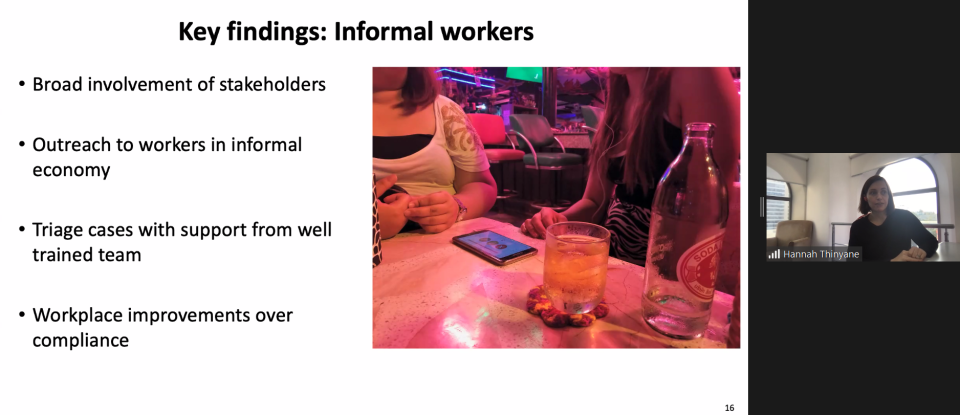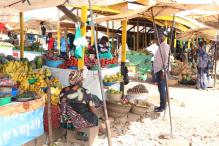Individuals working in the informal economy, without access to the same social, financial, and legal protections afforded to formal workers, have been hit the hardest by the economic impacts of the COVID-19 pandemic. “Informality” as described by the International Labour Organization has no universally accepted definition, accommodating considerable diversity and existing across multiple dimensions. Workers may be considered part of the informal economy because their employment arrangement is simply not covered within relevant labour legislation. It alternatively may be the case that employees are afforded rights and protections in theory under the law, but because of inadequate enforcement, in reality they fail to realize these rights at work. Considering this point, the practical difficulties of efficiently and effectively screening work environments to ensure the upholding of labour standards has been recognised as one of the major challenges to formalisation. Information and communication technologies (ICTs) hold promise to overcome many of the challenges related to formalization, including being applied in innovative ways to ensure worker’s rights through the enhanced identification of exploitation and labour violations.
Research suggests that increased inspection capacity along with technical modernization of information systems can create a greater probability of formalisation. However, labour inspectorates all around the world are consistently underfunded and understaffed. In some developing countries less than 1% of national budgets are spent on labour administration as a whole, and of that small amount, an even a smaller fraction is devoted specifically towards financing inspection services. Leveraging ICTs can aid inspectors and social auditors alike in their assessment of hard-to-reach work environments, it can create greater transparency and accountability between parties, and translate to improved monitoring and follow-up. In spite of these benefits, according to an ILO survey on the use of ICTs by national labour administrations, the transformative potential of technology remains broadly underrealized when it comes to understanding working conditions.
Of the 2 billion people who work informally around the world, Asia is home to 1 billion of them. Recognizing the growing role for technology to support and facilitate the transition towards formalisation, the ILO and UN-ESCAP jointly hosted an online research forum on this topic. Here, Dr. Hannah Thinyane and I presented key research findings from the development and piloting of Apprise and Apprise Audit that have taken place over the past few years. Used by frontline responders(FLRs) throughout Southeast Asia in official labour inspection activities, voluntary non-compliance monitoring in supply chains and NGOs gathering worker feedback, we highlighted case studies from our collective learnings.

Apprise and Apprise Audit support formalisation by providing a voice to workers who experience varying degrees of informality but are employed as part of a formal enterprise. Due to factors such as language barriers and fear of retaliation, workers who are being denied social protections or exploited may be unable to disclose this information to a FLR, even when one is present. By overcoming communication and privacy barriers through a multi-lingual audio questionnaire and confidential interface, vulnerable workers feel more privacy and security to disclose grievances and sensitive information when empowered with this option. Apprise has also been used directly by informal workers whose employment is not covered in labour law (i.e. sex workers), to help these communities self-assess their working conditions and understand patterns of exploitation.
The design and function of Apprise’s system itself, while ultimately a tool in the hands of a potential victims, can also provide added benefits for governments, employers and workers alike, aligning well with the ILO’s principle of tripartism. Using the content management system for the post-hoc review of worker responses, inspectorates and brands can make more informed and effective risk-based prioritization to ensure resource deployment to the highest-risk work environments. Digital solutions, such as Apprise, promote formalization by enhancing the existing capacity of frontline responders, which in turn leads to increased compliance, better identification of victimization, and ultimately greater labour relations. The insights we shared along with the other participants will feed into a knowledge sharing forum with the ILO’s constituents in the Asia-Pacific on how technologies can enhance the impact of institutional polices addressing informality.
Suggested citation: Michael Gallo., "Technological Innovation to Support Formalisation and Reduce Exploitation," UNU Macau (blog), 2021-01-28, https://unu.edu/macau/blog-post/technological-innovation-support-formalisation-and-reduce-exploitation.

